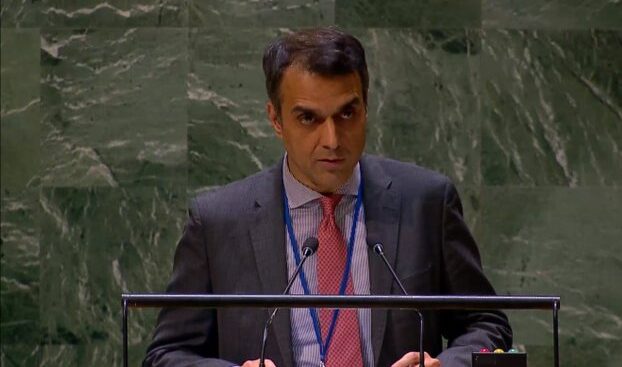Pakistan Urges UN for Concessional Financing to Boost Clean Energy
In a pressing appeal at the United Nations, Pakistan’s Ambassador Usman Jadoon emphasized the need for accelerated progress towards sustainable energy goals, highlighting the significant financing gap hindering developing countries’ transition to clean energy.
Addressing a session on Global Energy Interconnectivity and Transition for SDGs, Ambassador Jadoon stressed that investments in sustainable infrastructure fall short of the scale required to meet the global challenge. He pointed out that a $2.5 trillion annual funding gap exists, with two-thirds of it needed in developing countries.
Pakistan aims to achieve 60% renewable energy by 2030, requiring an estimated $100 billion in investment by 2030 and an additional $65 billion by 2040. However, developing countries struggle to mobilize sufficient investment due to limited public resources and challenges in securing private investment.
Ambassador Jadoon called for mobilizing concessional finance to mitigate risks, enhance credit quality, and improve financing terms. He also highlighted the importance of innovative mechanisms to aid developing countries in developing viable infrastructure projects.
The session emphasized the need for dramatically scaling up finance and investment for developing countries to achieve SDG-7 and a just energy transition. China’s role as a key partner in achieving SDG-7 was acknowledged, with several energy projects undertaken under the China-Pakistan Economic Corridor.
The Global Energy Interconnection project was recognized as an innovative initiative contributing to achieving SDG-7 and a just energy transition. The UN General Assembly President, Dennis Francis, stressed the need for access to affordable, reliable, sustainable, and modern energy for all by 2030.

